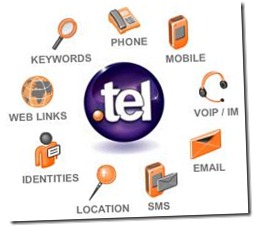By Tim Schumacher
Possessing a memorable domain name is still considered to be an essential component to any successful business - especially any successful online business. To prove this, just do the "billboard test" anywhere in the world: look at a billboard, or any other company advertising, and most likely you will see the company's or its product's domain name.
However, in recent months, an interesting development has started to occur around the globe. Look around, very often you'll see, especially with companies that consider themselves trend setters, domain names starting to disappear or move into the background. Instead, companies now advertise their Facebook landing page, Twitter handles or even their iPhone application. Furthermore, these companies' web sites and existing communications are being used to promote these new marketing channels.
I recently realized that I've been encouraging the very same behavior at my own company. Why shouldn't we be considering ourselves trend setters in our respective industry? So, besides promoting our web site, we too have started advertising our Twitter account and Facebook page. We also advertise on Google, Yahoo and Bing, and even our own iPhone app will be announced in the near future. So entrenched have we become in those efforts, that we, just like almost any company out there, have lost sight of what extreme long-term danger looms on the horizon: namely the "Navigation Nightmare."
Here's the problem: While it's smart and Web 2.0 trendy to use all of the above channels as additional means of advertising and building customer loyalty, it's inherently wrong and even dangerous to use them as a means of navigation. Why? Because all the power is being put in the hands of the providers.
When people start using these different channels to navigate, what occurs is an inherent loss of control, causing potentially massive costs which can go as far as wiping out an entire company's profits. In all four examples – Facebook, Twitter, Google and the iPhone – businesses put their entire fate into the control of each of those providers. As a result, the following three things can then happen:
- Providers can kick any business or even an entire industry out of its network, with or without reason. Consider Apple's adult ban – while the pros and cons of the act itself can be debated, it certainly shows how an entire industry is at the mercy of a giant;
- Providers can go out of business, and there is no regulative environment in place. Seem unlikely? Remember FortuneCity or Geocities? They were the over-hyped early predecessors of social communities offering easy site hosting. Nevertheless, Yahoo terminated Geocities in 2009 – after having bought it for a whopping $2.87 billion in 1999.
- Probably the biggest threat is how providers can and will maximize profits, once lock-in is sufficiently big, and profitability goals will follow growth goals. If your company has a million Facebook or Twitter followers, how good will your negotiation position be if suddenly the provider starts charging hefty fees? If you have tons of happy iPhone users on your app, how good will your negotiation position be if Apple suddenly wants a slice of all of your transactions? If you get all your business leads through Google, how good will your negotiation position be if suddenly you will no longer be listed in the organic search, but instead, Google offers your company to appear on top of the results for a fee?
All of the above threats are very real, yet still seem to be very much ignored amidst all of the current hype.
Facebook, Twitter, Google's Ad Network and iPhone Apps are proprietary walled-garden approaches, which are not what the Internet needs, and inherently present a danger for any business relying on these channels for navigation and domain addressing mechanisms.
Building an online business on top of Facebook, Twitter, Google or iPhone Apps, is like building a house on rented ground, with the landlord being in complete control. Like many renters, one day you might hear your fees have just skyrocketed in the matter of seconds. Don't let that happen to you. Otherwise, you can all but hope that history repeats itself and that innovative newcomers will continue to challenge the position of those walled-gardens.
While Facebook and Twitter are excellent networking tools that can have a tremendously positive effect on your business, they should not be the central hub of your communications efforts. In order to put the control back in your hands and eliminate any potential threats to your business, your domain should be the one location to which all other channels should link.






















